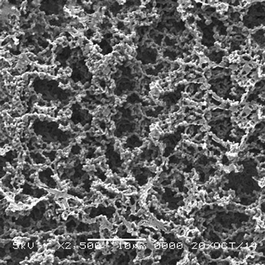Description
GVS Life Sciences Mixed Cellulose Esters (MCE) Filtration Membrane is an unsupported, hydrophilic membrane. Its rapid flow rate and high throughput make it ideal for use in diagnostic kit manufacturing applications.
Typical Applications:
• Aqueous filtration
• Sterility testing
• Gravimetric analysis with ashing technique
• Microbiological and particulate analysis
Features and Benefits:
• High flow rate: Provides fast filtration rates
• Uniform pore structure: Provides consistent flow and diffusion rates
• Lot-to-lot consistency
Consistent Uniformity Improves Control and Performance:
GVS Life Sciences MCE Filtration Membranes are composed of a mixture of inert cellulose nitrate and cellulose acetate polymers. The uniform microporous structure of these filters provides the fastest flow rates and highest throughputs available in a membrane filter. Because they are biologically inert, GVS Life Sciences MCE Filtration Membranes are ideal for a wide range of clarification, sterilization and analytical applications such as: microbiological analysis, clarification or sterilization of aqueous solutions, industrial hygiene applications, silt density index and particulate-matter analysis. For gravimetric analysis using ashing techniques, GVS Life Sciences MCE Membranes yield a residue or less than 0.045% of their initial weight. They are hydrophilic with a noncytotoxic wetting agent and yield extractable levels of less than 4% of their weight. These membranes are autoclavable at 121°C (250°F) for 20 minutes.
Product Characteristics:
• USP Class VI testing: Passed
• Thickness: 100 to 190 m
• Sealing Compatibility: Ultrasonic, Heat, Radio Frequency and Insert Molding
• Extractables: < 4%
• BSA Protein Binding: Approx. 160 g/cm2 (depending on pore size)
• Maximum Operating Temperature: 356°F (180°C)
• Sealing Compatibility: Ultrasonic, Heat, Radio Frequency and Insert Molding
• Pore Size Range: 0.1 to 8.0 m
Image(s) are representative of the product group and not necessarily the individual product.


